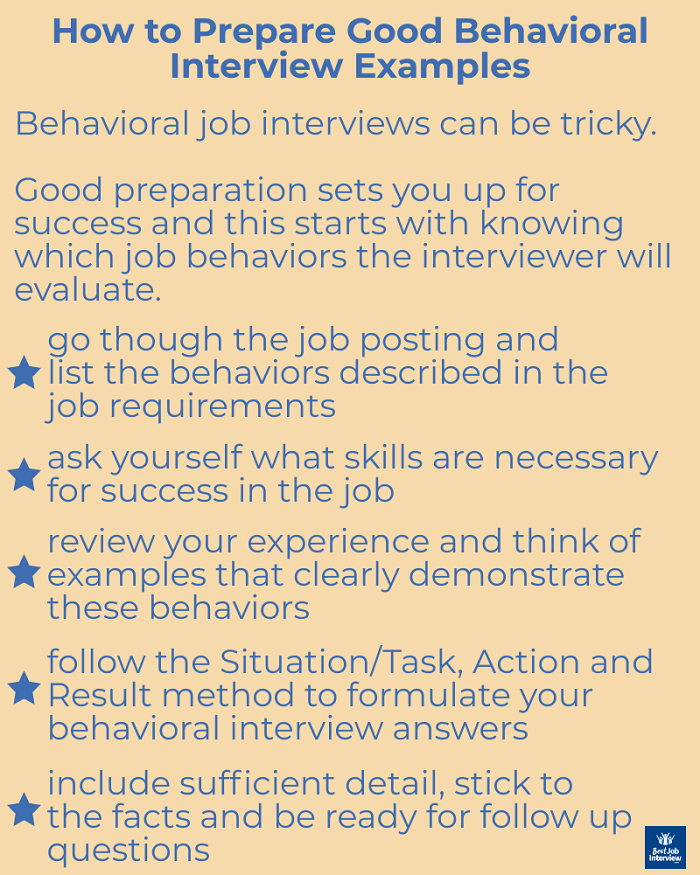You can be successful in behavioral job interviews with these 10 simple steps.
How to answer difficult behavioral interview questions and handle the behavioral-based talking to process like a pro.
These actions simplify the behavioral interview procedure for task
prospects, making it easy to handle. Don’t be captured unawares by behavioral interview techniques, know what to anticipate and be prepared with great behavioral interview responses.
How to Ace Behavioral Task Interviews
Be positive that you are well prepared. Follow these 10 actions and stand apart as the right job candidate in your next interview. 1. Prepare for common behavioral interview concerns Determine which questions you will be asked so that you can prepare good responses.
- Getting ready for behavioral interview concerns involves examining the task
- and noting the office
- proficiencies
- and habits needed for
success in the position. Ask yourself the following concerns: What abilities are needed to do the job? What makes an individual successful in this kind of position?
Why would someone fail in this position? What are the challenging elements of this position? .
Theanswers to these concerns suggest what habits the interview will check out. A client service position requires excellent communication abilities, analytical capability, precision, flexibility and tolerance. Use this list of occupational behaviors to help you clarify the behaviors and competencies that use to the job you are speaking with for Full list of behavioral-based interview concerns
2.
Have great behavioral interview answers all set Evaluation your experience and background and consider examples that highlight
your strength and skills in these areas. Utilize these sample responses to behavioral interview concerns to help you.
3. Include enough detail in your answers
Be specific and in-depth with the examples you utilize to address the
behavioral question. Avoid unimportant ramblings or going off at a.
tangent. Stick to the truths and carefully overview in detail the actions you took.
4. Listen thoroughly to each question.
This is key to behavioral job interviews. Exaggerating the results will be found out by the interviewer’s further questioning.
You can rephrase the question back to clarify if you are not sure what the job interviewer is looking for.
Are you asking me to explain a scenario where…?.
This also gives you time to believe about your answer. It is quite acceptable to take a little time to create your reaction.
5. Use recent examples in your answer. The details of more current behavioral stories will be easier to remember and the recruiter will view them as more valid. If you have actually limited work experience you can use examples from internships, college or school classes and jobs, sports participation, community.service or your interests and hobbies. As. long as the example demonstrates the behavior that is being checked out.

For instance if you are inquired about how you have tackled dealing with

dispute, you can even utilize an example from your household life.
6. Be positive about managing unfavorable scenarios.

In some cases in behavioral job interviews the concern will search for out how you reacted to an unfavorable situation.
Tell me about a time when you were not able to solve a problem the very first time, what did you do?.
More Job/Career Ideas & Resources

Prepare some examples of negative experiences, however use those that you were able to get something favorable out of or found out something valuable from.
7. Vary your examples. Believe of situations from different areas of your life and profession. Go through. your resume to refresh your memory to assist you with this. Ensure each. example has a start, middle and end. Be prepared to information the situation, the actions you took and the outcome.
Article source: https://www.best-job-interview.com/behavioral-job-interviews.html



